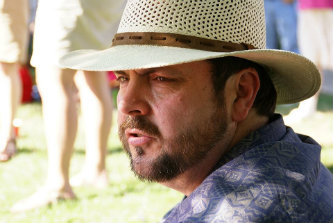Scholars examine the humanities
Religion scholars from the United States and Canada came together on the Lehigh campus last week to discuss how they deal with tradition, experience, identity and other topics of inquiry as part of a two-day conference hosted by the department of religion studies.
The conference, “Collaborations: Directions in the Study of Religion,” turned the gaze back on the scholars who represent various perspectives in the study of religion. Presentations were tweeted live at #LUOnTheEdge, and plans call for the scholars’ contributions to be collected in an edited volume.
“We were all together the whole time,” said Michael Raposa, department chair and professor of religion studies. “We were all pursuing the same threads.” Describing the experience as both exhausting and rewarding, Raposa said the conference “pressed all of us to bring our best, to bring our prodding, probing questions. That wouldn’t be possible in a normal conference setting.”
Russell T. McCutcheon, professor and department chair of religious studies at the University of Alabama at Tuscaloosa, delivered the conference’s plenary address, titled “And That’s Why No One Takes the Humanities Seriously.” McCutcheon said he was quoting a colleague in the title (she was responding to the use of poems to open an academic journal) but that he had set out to argue for relevance.
“We self-marginalize ourselves,” he said. Yet, in the study of the humanities, people come to understand what is going on around them and in the world, McCutcheon added.
In his talk, McCutcheon argued that scholars should not take sides in determining which claims are credible and which are not, which societies are normative and which are not. “We ought to use an equal opportunity methodology,” he said, as a way to define critical thinking.
As a scholar of religion, McCutcheon believes he has a duty to uphold the profession’s standards of argumentation and collaboration. He said he views the human sciences as a “loosely knit collection of intellectual pursuits” that focuses on the study of people and what they produce in life and leave behind in death, “but doing so to complicate and not to simplify things.”
McCutcheon pointed out that the world is complicated. “An ally one day is an enemy the next,” he said. “Your freedom fighter is a terrorist to me.” He said people’s efforts to simplify requires scholars “to muddy the waters considerably” to identify yesterday’s choices and to empower students to consider what decisions they may wish to make tomorrow.
The humanities ought to be taken seriously, McCutcheon argued, for they ensure “our students become players, whatever way they choose to play the game.” To that end, he said, professors should assume a Socratic role as strategic, yet modest, inquirers. “The trick,” he said, “is in slowly persuading students that their expertise, their common sense is itself the thing that should attract their attention.”
If professors are able to foster inquiry in the classroom or in the editing of an academic journal, McCutcheon said, they are part of the humanities and will be taken seriously by students and their parents as well as their colleagues. But if professors only represent back to people their own taken-for-granted assumption about the world, assuring them that they are right and others wrong and that the world is easily understood, “then I don’t think you’re in the humanities and I see little reason to take you seriously,” he said.
McCutcheon is renowned for his studies of the theory of religion, the history of religious scholarship and the uses of categories in defining religions. The author, coauthor or editor of a dozen books, he holds a Ph.D. from the University of Toronto.
The second day of the conference featured panel discussions with a dozen scholars from the United States and Canada. Topics were “Tradition,” “The Past,” “Identity” and “Experience.” The discussions examined how religion scholars deal with tradition, experience, origins and other popular topics of inquiry.
McCutcheon’s stay at Lehigh was sponsored by the Alice Eckardt Visiting Scholar-in-Residence Program, named for a professor emerita of religion students and endowed by an anonymous donor.
Story by Mary Ellen Alu
Posted on:


